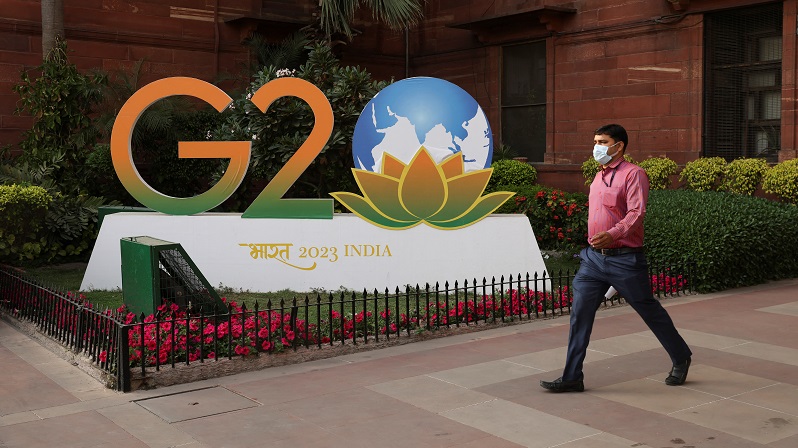India, backed by China, is trying to build a consensus within the G20 group to let countries choose a roadmap to cut carbon emissions instead of setting a deadline to end the use of fossil fuels, three Indian government officials said.
India, the current G20 president, is keen on introducing the phrase ‘multiple energy pathways’ in a communique to be released at a group summit in September and has been supported by countries including China and South Africa, one of the officials said. The three officials declined to be identified since they were not authorised to speak to media.
At a meeting of the G20 Energy Transitions Working Group (ETWG) in the western state of Gujarat last month, India opposed a deadline proposed by rich nations to end the use of coal, said the official who was at the meeting.
In recent meetings of the smaller G7 group of rich nations, the UK and Canada pushed for agreement on a 2030 coal phase-out date but were succesfully opposed by Japan, the USA and the EU. Gaining consensus in the G20, which includes emerging economies is likely to be even harder.
The G7 did agreed though “to accelerate the phase-out of unabated fossil fuels so as to achieve net zero in energy systems by 2050 at the latest”.
Cop28 head backs fossil phase-out with carbon capture caveat
Coal accounts for nearly three-quarters of India’s annual electricity generation, according to government data, and New Delhi has long defended its use of the fuel, citing India’s lower emissions per person, compared to other countries.
China supported India during the meeting, saying it cannot put a timeline on ending fossil fuel dependence and would want to put ‘all’ its available resources to optimum use, the official said.
The two countries are the top two consumers of coal in the world. China has set a net zero target of 2060 while India aims for 2070.
Officials said it was the first time India used the phrase ‘multiple pathways’ in global climate negotiations against repeated demands by Western nations to end coal usage.
What is the global stocktake of climate action and why does it matter?
A second official said the phrase is in conformity with the 2015 Paris Agreement on combating climate change that favours “common but differentiated responsibilities, under different national circumstances”. He said rich countries overlook this while asking for the exit from coal.
“A dominant view was seen emerging on every country to have individual pathways to achieve their national commitments and endowments,” a third official who attended the meeting said.
After agreeing to phase down down the use of coal at the Cop26 climate talks in 2021, India pushed at Cop27 last year for a phase out of all fossil fuels including oil and gas.
They were supported by a coalition of rich nations, climate vulnerable countries and others like Chile and Colombia. But they were unsuccesful, as major oil and gas producers Saudi Arabia, Iran and Russia opposed them.
At the G20 meeting last month, India kept the focus on fossil fuels, rather than singling out coal, the third official said.
Delhi will host a summit of G20 leaders in September.
Officials are meeting in the run-up to that meeting to finalise the group’s position on global issues including climate change.
